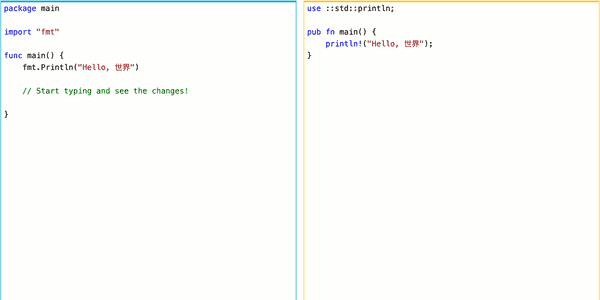I’m a big fan of Go. I find that its pragmatism makes it extremely pleasant to use. Its expressiveness and simplicity enable me to project the way I think into an implementation that just works.
I’m also a huge fan of Rust for different reasons, but mostly performance and robustness. And while the Rust compiler has immensely improved over the last few years, I sometimes feel like I’m fighting it (but somehow I like it).
I’ve always wanted to have a better understanding of the Go internals. I’ve read the language specification, but I wanted to go further. And what would be a better way to do it than actually implementing a Go compiler?
This is why I have started to work on gors. Gors is a Go to Rust compiler. The ultimate goal would be to allow accessing the rich Go ecosystem from Rust.
I don’t have the pretension (nor the time, nor the skills) to write a full-blown Go compiler alone, but that is still a tremendous educative means.
The project is currently at a state where it has a 100% compliant lexer (including compiler directives), a mostly compliant parser, and working code generation. The generated AST allows running passes to perform various code optimizations and inlining.
The whole project can run in the browser, this is done by compiling the compiler to a WASM target. You can give it a try in the editor.

